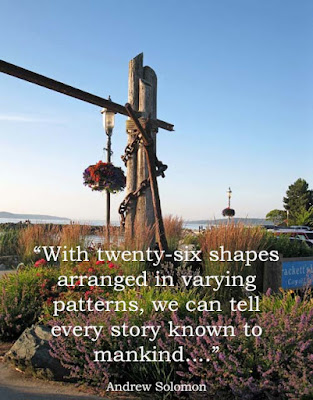“Your
story is important.” You’ve heard me say those words at least a hundred times.
“Someone
needs to know your story.” I’ve also said those words over and over again.
I
keep receiving reminders of those words and the truth of them, so I keep
reminding you, too.
For
example, just this morning I read the following words from Lloyd Ogilvie:
“All
we have and are is a gift of grace to be shared. Everything that happens to us prepares
us to develop deep, sharing relationships. . . . Everything grace has given us
is for others.”
Ogilvie continues: “When we go through the valleys of trials or stand on the mountaintops
of victory, we are being prepared to enter into the difficulties and victories
of others.
“We
go through all of this so that we can be able to say those empowering words of
empathy, ‘I know what you are going through—I’ve been there!’
“Life
is a school of grace
equipping
us for a ministry of sharing,
developing
confidence so we can say,
‘Thank
You, Lord, for what has happened.
I
can’t wait to see how You are going to use
what
You have taught me
in
sharing with someone
who
will need just what I discovered!”
(Lloyd
Ogilvie, Silent Strength for My Life)
And
now I hope the following Andrew Solomon quote makes you chuckle, but I also
hope it inspires awe.
Solomon wrote, “Despite every advancement, language remains the defining nexus of our humanity; it is where our knowledge and hope lie.
“It
is the precondition of human tenderness, mightier than the sword but also
infinitely more subtle and ultimately more urgent.
“Remember
that writing things down makes them real; that it is nearly impossible to hate
anyone whose story you know; and, most of all, that even in our post
post-modern era, writing has a moral purpose.”
“With
twenty-six shapes arranged in varying patterns,
we
can tell every story known to mankind,
and
make up all the new ones. . . .
If
you can give language to experiences previously starved for it,
you
can make the world a better place.”




